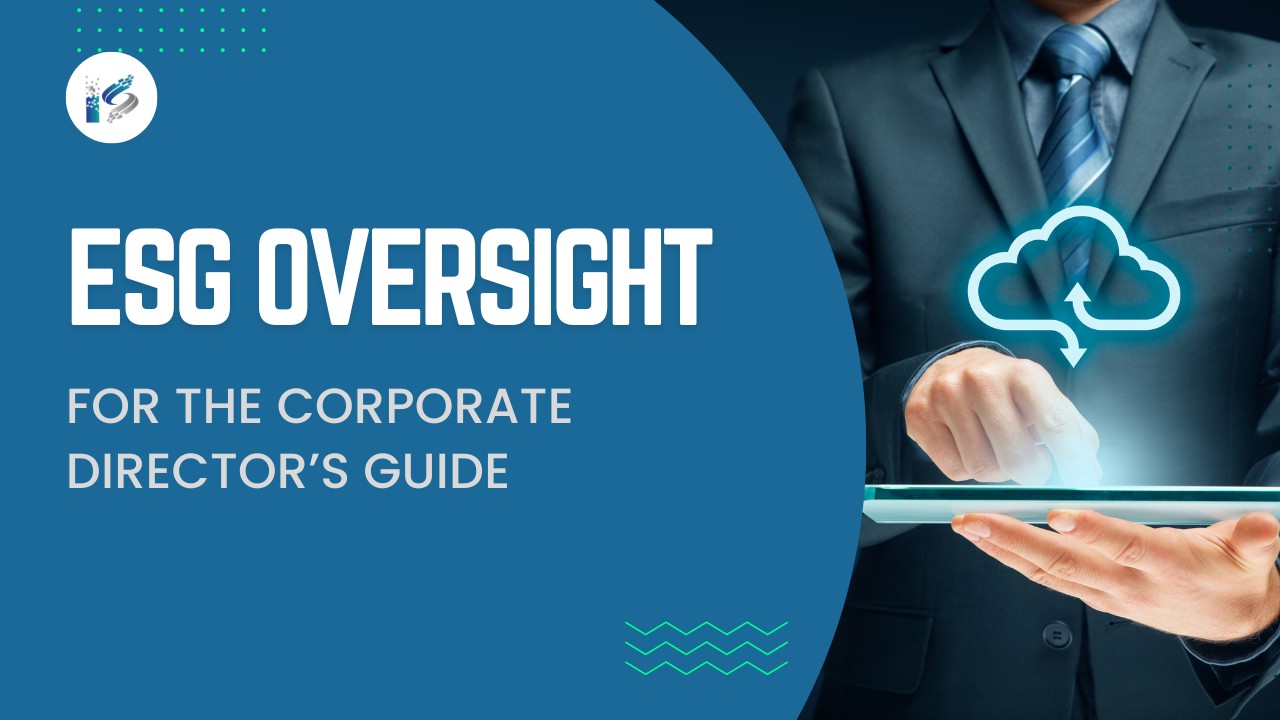In today’s rapidly changing business landscape, environmental, social, and governance (ESG) considerations have become crucial for corporate directors. This article will delve into the importance of ESG oversight, understanding the key factors encompassed by ESG, implementing effective oversight practices, and the benefits and challenges associated with ESG integration.
What is ESG?
ESG stands for environmental, social, and governance. It refers to a set of criteria that investors and stakeholders use to evaluate a company’s sustainability and ethical practices. ESG factors encompass a wide range of considerations, including a company’s environmental impact, treatment of employees and communities, and its governance structure.
Importance of ESG Oversight for Corporate Directors
In recent years, ESG has gained significant attention due to its potential impact on a company’s long-term success. Corporate directors play a crucial role in overseeing ESG matters and ensuring that the company aligns with responsible business practices. By integrating ESG oversight into their decision-making processes, directors can enhance a company’s reputation, mitigate risks, and attract investors and stakeholders who prioritize sustainability.
Understanding ESG
Environmental Factors
The environmental aspect of ESG covers a company’s impact on the environment, including its energy consumption, waste management practices, and carbon emissions. Effective ESG oversight requires directors to understand and address environmental challenges, such as climate change, resource depletion, and pollution.
Social Factors
Social factors within ESG encompass a company’s treatment of employees, communities, customers, and suppliers. Directors must focus on promoting fair labor practices, diversity and inclusion, product safety, and community engagement. By addressing social concerns, companies can build stronger relationships with their stakeholders and foster sustainable growth.
Governance Factors
Governance factors refer to a company’s internal processes, structures, and policies. Effective governance ensures ethical conduct, transparency, and accountability. Directors need to establish robust governance frameworks, including board composition, risk management systems, and internal controls, to support effective ESG oversight.
Implementing ESG Oversight
Establishing ESG Policies and Guidelines
To ensure effective ESG oversight, corporate directors should establish clear ESG policies and guidelines. These should outline the company’s commitment to sustainability, set goals and targets, and provide a framework for decision-making.
Integrating ESG into Decision-Making Processes
ESG considerations should be integrated into the company’s decision-making processes at all levels. Directors must encourage a holistic approach that balances financial goals with ESG objectives. This involves assessing the potential ESG impacts of strategic decisions and considering long-term sustainability.
Ensuring Accountability and Transparency
Directors need to establish mechanisms to ensure accountability and transparency regarding ESG matters. This includes regular monitoring and reporting on ESG performance, as well as engaging with stakeholders to address concerns and gather feedback.
Benefits of ESG Oversight
Enhanced Reputation and Brand Value
Companies that prioritize ESG oversight and demonstrate responsible practices tend to enjoy enhanced reputation and brand value. Consumers and investors increasingly favor businesses that align with their values and contribute positively to society.
Improved Risk Management and Long-term Sustainability
ESG oversight helps identify and mitigate potential risks, such as environmental disasters, social controversies, or governance failures. By proactively managing these risks, companies can enhance their long-term sustainability and resilience.
Attracting Investors and Stakeholders
Investors are increasingly looking for opportunities that align with ESG principles. By incorporating ESG oversight, companies can attract socially responsible investors, accessing capital and fostering long-term relationships with stakeholders who share their commitment to sustainability.
Challenges and Solutions
Lack of Standardized Metrics and Reporting
One of the challenges in implementing effective ESG oversight is the lack of standardized metrics and reporting frameworks. Directors should advocate for the development of industry-wide standards to facilitate meaningful comparisons and benchmarking.
Balancing Short-term and Long-term Objectives
Companies often face the challenge of balancing short-term financial goals with long-term ESG objectives. Directors should promote a culture that values sustainability and encourages the integration of ESG factors into strategic decision-making.
Engaging Stakeholders and Addressing Conflicting Interests
Stakeholder engagement is crucial for successful ESG oversight. Directors must actively engage with various stakeholders, such as employees, customers, communities, and investors, to understand their expectations, address concerns, and reconcile conflicting interests.
Navigating Regulatory Complexities
The regulatory landscape surrounding ESG is constantly evolving. Directors must stay informed about emerging regulations and ensure compliance while navigating the complexities of multiple jurisdictions. Engaging external ESG experts can provide valuable insights and guidance.
Best Practices
Board Composition and Diversity
To foster effective ESG oversight, boards should strive for diverse composition. Including individuals with ESG expertise and diverse backgrounds brings a range of perspectives and ensures comprehensive consideration of ESG factors.
Regular ESG Training and Education
Directors should receive regular ESG training and education to stay updated on the latest developments, best practices, and emerging risks. This equips them with the necessary knowledge to make informed decisions and oversee ESG matters effectively.
Engaging with External ESG Experts
External ESG experts can provide valuable insights and guidance to boards. Engaging with these experts allows directors to tap into specialized knowledge, gain industry-specific perspectives, and ensure the adoption of best practices.
Regular Monitoring and Reporting
Directors should establish processes for regular monitoring and reporting of ESG performance. This includes setting Key Performance Indicators (KPIs), conducting audits, and transparently communicating the company’s progress and challenges in meeting its ESG objectives.
Need help on maintaining Azure Security Center Secure Score of Clients?
Our experts can help you on all kinds of works on Azure Security Center.
Conclusion
In conclusion, ESG oversight is of paramount importance for corporate directors. By understanding and integrating ESG factors into decision-making processes, directors can enhance a company’s reputation, manage risks effectively, attract investors, and contribute to long-term sustainability. However, this requires addressing challenges, adopting best practices, and actively engaging stakeholders to navigate the complex ESG landscape successfully.








